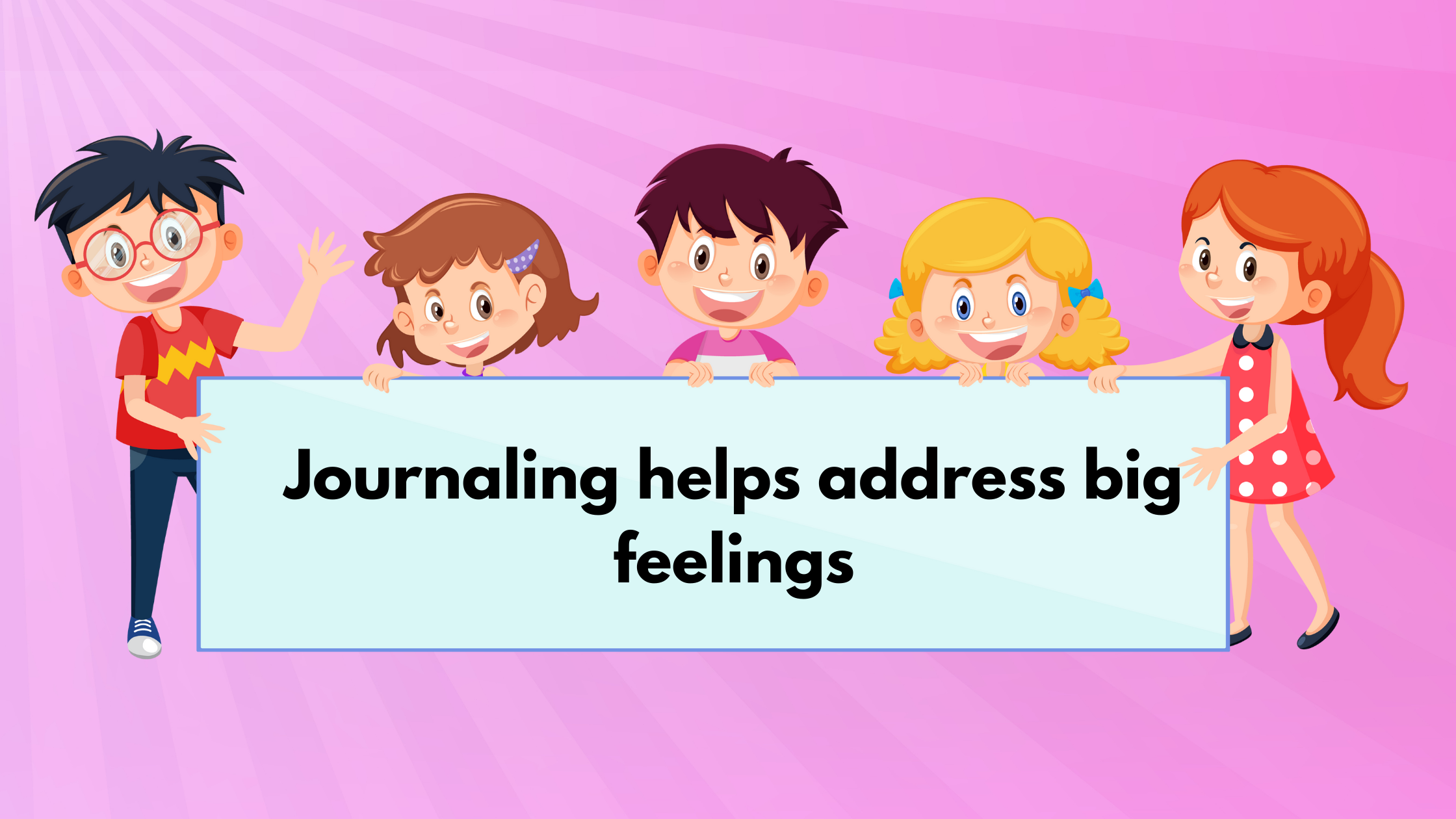
Journaling helps address big feelings
As parents, we’ve all seen our kids experience big feelings—whether it's excitement, frustration, or sadness. These emotions can sometimes be overwhelming, leaving both kids and parents unsure of how to cope. But what if there was a simple tool that could help children understand and manage these emotions more effectively?
Journaling is a powerful way to help children process their feelings and build emotional resilience. In fact, research from neuroscience shows that writing in a journal can have a profound impact on kids' emotional growth. In this blog, we’ll explore how journaling helps kids manage big feelings, supported by science.
The Science Behind Journaling: Why It Works
1. The Amygdala: Calming Big Emotions
The amygdala is a small part of the brain responsible for processing emotions like fear, excitement, and anger. For children, this area is still developing, which makes emotional regulation a challenge. When kids feel overwhelmed, the amygdala can go into overdrive, causing emotional outbursts or shutdowns.
This is where journaling comes in. When children write about their feelings, it helps them name and understand their emotions—a concept known as "name it to tame it." By putting their emotions into words, they can calm the amygdala, reducing emotional intensity and giving them more control over their reactions. Journaling becomes a tool for emotional self-regulation.
2. The Prefrontal Cortex: Strengthening Self-Control
The prefrontal cortex, another key brain region, helps us with higher-level thinking, decision-making, and self-control. It's the part of the brain that allows us to pause, reflect, and regulate our impulses.
Journaling encourages kids to engage their prefrontal cortex by helping them reflect on their emotions and experiences. This not only boosts their emotional insight but also improves their ability to make thoughtful decisions and manage emotional impulses. The more kids practice journaling, the stronger this brain connection becomes, leading to better emotional regulation.
How Journaling Helps Kids Process Emotions
1. A Safe Space for Emotional Expression
One of the biggest benefits of journaling is that it provides kids with a private, safe space to express their emotions. Whether it's happiness, frustration, or sadness, writing helps children externalize their feelings without fear of judgment. This safe space is crucial for emotional expression, especially for kids who may not have the words to verbalize their emotions.
Research shows that expressive writing can reduce stress and anxiety. For children, journaling is an effective way to vent emotions and process difficult feelings in a controlled way, helping them avoid emotional outbursts.
2. Enhancing Emotional Awareness
Journaling also helps kids develop emotional awareness. When children write about their day or how they’re feeling, they start to reflect on their emotions. This self-reflection is a key step in emotional growth, as it teaches kids to recognize the connection between their thoughts, feelings, and actions.
For example, a child who frequently writes about feeling anxious before school might begin to recognize patterns in their emotions. This awareness is the first step in managing emotions and addressing the root causes of their feelings.
How to Start Journaling with Kids
1. Start Small
Begin with just a few minutes a day—five minutes is enough. Kids can start by writing about their favorite part of the day or what they’re grateful for. This helps build the journaling habit without feeling overwhelming.
2. Encourage Creativity
Journaling doesn't have to be just writing—kids can draw, doodle, or use stickers. The goal is to give them a creative outlet for expressing their emotions, whether through words, pictures, or both.
3. Reflect Together
After journaling, take a few moments to reflect with your child. Ask them how they felt during the journaling process and what they learned. This encourages deeper emotional awareness and helps reinforce the benefits of journaling.
The Power of Journaling for Kids
Journaling isn’t just a fun activity; it’s a powerful tool that helps children understand and manage their emotions. By engaging the brain’s emotional regulation centers, journaling helps kids calm overwhelming emotions, gain self-awareness, and strengthen their ability to control their impulses.
Introducing journaling to your child gives them a lifelong tool to navigate their emotions, build resilience, and develop emotional intelligence. It’s an investment in their mental and emotional growth that will pay off for years to come.
Ready to help your child manage their big feelings? Start journaling today with a Scrible Forge journal! Our fun and engaging journals are designed to help children express themselves, understand their emotions, and grow emotionally strong.